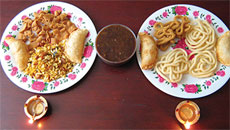In British Columbia, hundreds of individuals wait on organ recipient lists for the gift of life
As the world continues to get busier and busier, many individuals forget to check off items on their ‘to-do’ lists. For many of us, we have thought about organ donation, either as a living donor or after we pass away, however in the rat race of life, we often forget to register with organizations such as BC Transplant, an agency of the Provincial Health Services Authority, which is responsible for organ donation and transplantation in the province.
The wake up call comes for individuals when they are faced with the dire situation in which they require an organ from a donor, or have a family member that requires an organ. Waiting times for organs can vary and take anywhere from months to years depending on whether the organ is a match and a viable option – the question is can the patient, depending on what organ is required, survive?
It’s time to take action – research the organ donation process, speak to BC Transplant or your physician, undergo testing to find out if your organs are viable for transplant, then make the decision, which literally provides a gift of life.
“I will forever be indebted to the donor and their family for giving me a second chance at life,” says Dr. Rajindar Sandhu, a family physician, who after waiting for 7 years on the organ recipient list received a kidney and underwent the transplant procedure.
BC Transplant’s media campaign slogan ‘Live Life, Pass It On’ essentially sums up the organ donation process. For 2012, from January 1 to November 1, there are currently 467 individuals in BC waiting for a transplant – of this, 368 are waiting for a kidney. This year, there have been 259 transplant surgeries performed. Unfortunately, 17 individuals in need have died while waiting for their compatible organ.
ACT OF KINDNESS
Randeep Khehra, along with his wife and two children, took the leap of faith and immigrated from India to Canada in 2005. In terms of employment, Khehra worked hard as a taxi cab driver, than began to drive industrial trucks. In 2007, he learned from physicians that he had kidney disease, and he went through multiple tests but the reasons for kidney failure remained unclear.
His sister and mother-in-law both came forward and offered to donate one of their kidneys to aid Khehra. In the case of living donors, Sandhu says a comprehensive screening process occurs, in which a set of medical tests and interviews are completed. This is done to not only determine if the donor’s organ is a suitable, functional match for the recipient, but to also ensure the donor will continue to lead a healthy life without the organ. Living donors refers to individuals who can potentially donate one of their kidneys or a portion of their liver.
In this case, the organs were not a suitable match for Khehra, who was thankful to his family members for their unbelievable offer. He continued on the path towards dialysis, a medical process that essentially carries out the functions of a kidney – to regulate the body’s level of water and minerals and to remove waste. This process aids the body to remove unwanted waste and water from the blood. According to Khehra, whose blood type is ‘O,’ there is a long waiting list for organ recipients with this blood type, usually 6-8 years.
As he had young children and no extended family in Canada, his wife urged Khehra to reach out to the South Asian community, as donors within the same race/heritage pool have greater potential to be matched, similar to the bone marrow transplant, says
Dr. Greg Grant, provincial executive director, BC Transplant
Along with his physician Gulzar Cheema, Khehra told his story through local radio stations. One listener Mantej Dhillon heard Khehra’s appeal on the radio, and says “his appeal touched my heart, as he was a new immigrant with a young family.” Dhillon, who had never met Khehra, took action and decided to see if he was a suitable candidate to donate one of his kidneys. After undergoing tests, physicians determined that Dhillon was indeed a match and he proceeded forward by donating his kidney to a complete stranger.
“It was probably one of the most important decisions in my life, but it didn’t require too much thought. I didn’t want to see a broken family before my eyes, especially knowing that I could have done something about it – this is the reason why I decided to donate. The pleasure and love that is in giving is not found in anything else,” he adds.
After undergoing dialysis for a year, Khehra underwent transplant surgery in February 2011. He remained in hospital for a week, but his recovery was speedy in the sense that his body accepted the organ and began to function again in a normal manner.
Khehra feels like he has new lease on life and during the recovery process, he took the time to upgrade his education by taking home inspection courses. He is now a certified home inspector and enjoying his newfound health, career and family life in Canada.
He further reflects on his gift of life from a complete stranger, who has now become a “brother” to him. “Mantej Singh was totally unknown to me. His wife Kanwaljit Kaur supported Mantej to go for this cause. Both are such pure souls and came into my life like angels – I have no words to explain this act of kindness.”
He know calls “these angels my brother and sister,” as the two families have become close and often get together to celebrate life, family and friendships.
In terms of recovery for living donors, Dhillon says the first few days following the surgery were difficult, but otherwise everything is back to normal and he returned to work after 7 weeks. “I am leading a normal life with one kidney, I have the same energy, and continue to play soccer twice a week,” he adds.
Khehra and Dhillon have banded together, along with their families, friends and Dhillon’s BC Tigers Soccer Club, to raise awareness within the South Asian community about organ donation and to increase the number of South Asians on the registry list. To date, they have organized 10 “organ donor registry events,” including an event at Vaisakhi, which was two months after Khehra’s surgery. They have successfully signed up 500 individuals to the registry list.
“Today, science enables us to save many lives by donating our organs after death. In other words, with God’s grace, every human has the capacity to save many lives after living their own fulfilled life by donating organs,” says Khehra. “My humble request to everyone is please don’t let these organs turn into ash since you can save lives by donating.”
Dhillon adds to this sentiment, “Sharing can be giving food, giving wealth, and it can also be giving health. If you are a healthy person, you could be a great candidate to donate your kidney – there is a long waiting time for people who require this organ. Through the living donor program, you can bring happiness to suffering families.”
According to BC Transplant, as of April 2012, there was 831,946 British Columbians who hav e registered their decision on the registry – this represents only 18 per cent of the provincial population.
LIVE LIFE, PASS IT ON

Over the last 2.5 years, BC Transplant has made dramatic improvements, doubling the number of deceased organ donations in British Columbia, according to Dr. Greg Grant, the organization’s Provincial Executive Director. He cites this to a number of reasons, including increasing media attention and documentaries (65 Red Roses) that generate awareness across BC; improving the organization’s donation side by raising awareness levels and participation among physicians; and hospital support systems, such as in-hospital donation coordinators.
“What’s really exciting is four years ago, BC was at the bottom 25 per cent in Canada for number of donors per a million population, we are now above the average,” he adds.
Organ donation in BC increased by 17 per cent from April 1, 2011 to March 31, 2012 – there were 70 deceased organ donors, which not only set a record for the province, but enabled 277 patients to live healthier lives.
He has dealt with many cases, in which family members are not aware of the dying wishes of their loved ones in terms of organ donation. In regards to BC Transplant’s registry, he urges families to openly discuss this option prior to becoming ill so everyone is aware of one another’s final wishes.
Simone Harty, whose 17-year-old son Elliott died in a motorcycle accident echoed this statement by saying “If something good can come out of a tragedy like this, then it is a gift I am glad Elliot was able to give. I take comfort knowing that part of Elliot’s legacy is the gift of life he was able to give others.
Organ donation was never part of our life and we never talked about it – I think it is important that families talk about this and that you are not having these difficult conversations at your loved one’s death bed. You know their wish to donate their organs and can do just one more thing for them.”
As per the Mayo Clinic, “by donating your organs after you pass away, you can save or improve as many as 50 lives.” Furthermore, there are many myths surrounding organ donation, but many of them are actually untrue. For example, individuals fear that becoming an organ donor may compromise the care they receive in the hospital.
According to Grant, this is untrue, the hospital “emergency departments don’t check if a patient is registered with BC Transplant, and the organization is only contacted when that’s a serious consideration before we talk to the family.” Moreover, there is strict and regulated criteria in place and the organization won’t approach a family until the person is legally defined as dead, which means brain death, in which the brain has stopped fully functioning, says Grant.
Additional myths are “I’m too old” or “nobody wants my organs,” however there have been cases in which individuals in their 70’s, 80’s and even 90’s have donated healthy, viable organs after passing away. And leave it up to the experts, allow physicians to determine through the screening process if you’re a suitable candidate for transplant.
There is a massive organ trafficking market around the world, and according to a World Health Organization report, there has been a rise in the number of human organs being sold on the black market – roughly 11,000 organs were sold in 2010, but this number is an estimation and could be much higher. In developing nations around the world, individuals are either forced by gangs to harvest organs or in desperation/need of money, they will volunteer to donate their organs.

To date, Khehra, Dhillon and their family and friends have organized 10 “organ donor registry events" and successfully signed up 500 individuals to the registry list.
“We worry a lot about people being victimized in terms of the donors. There are well documented cases around world, where in areas of conflict, people are taken and they become donors,” says Grant. In addition, there are “worldwide networks where organs have been brought in from outside of a country…very, very questionable, you know, in terms of [donors] being murdered, that’s just not mythology.”
There can be complications for individuals who illegally or legally obtain organs from donors or family around the world, and they have to keep in perspective that the medical care and technology in countries vastly differs and if a transplant is done overseas, there can be complications and risk of infection or disease.
Grant says “you have to remember that there are people who spend a long time on wait list; there are some people who die waiting; there are also some people, where we know transplants won’t help them, as it isn’t going to affect long term health; and [other cases where] transplant may speed death.
Sometimes, there are circumstances where people are afraid that they’re not going to get a transplant in time to help them, I think that means we need to improve our game in BC – it’s very scary when people go other places, as the medical care in BC is different.
We’ve seen some major problems with transplants being done elsewhere, technologies are different around world. We have a fabulous transplant system in Canada, complications are low and technologies are good. Shopping for a kidney, very different dynamic, we’ve seen lot’s of cases, where people come back with very serious life threatening infections, tissue match is not been what people hoped it would be – those are big things, and they affect long term survival.”
In British Columbia, the provincial government covers the cost for anti-rejection medication ($6,000-10,000 a year), which an organ recipient must consume for the rest of their lives. In addition, the government pays for the costly service of dialysis, which can be between $50,000-60,000 a year, says Grant adding this is not the same for other provinces, but the BC government feels “taking the medication is so important that we will fund the medication related to the transplant – an important barrier is removed” allowing the patient’s body to adapt and accept the organ without having to struggle.
CONCLUSION
Individuals interested in registering with BC Transplant must use their Care Card and can register online through their website at transplant.bc.ca. Individuals can also register when they renew their Driver’s License or when you have a child, you can apply at this time to register your child.
In addition, Facebook launched a global tool this year allowing users to update their status as ‘organ donors’ and register through their respective province/state or national registry. This applies in BC, as the Facebook app takes users directly to BC Transplant’s online registry form. Around the world, the Facebook tool created immediate impact with organ donor registries increasing in the thousands. From April to September 2012, the number of British Columbians registered with BC Transplant increased from 831,946 to 849,552. In addition, transplant recipients are eligible to be organ donors. As per BC Transplant – “just because you had a kidney transplant doesn’t mean you’re lungs, liver, heart, pancreas and eyes couldn’t save someone’s life!”
Dr. Sandhu sums the issue of organ donation and transplant best through the following statement:
“As South Asians we must realize that with our high incidence of heart disease and diabetes, we are at risk for kidney disease and its complications. As part of the global community, it is imperative that all of us take a minute and at least give some thought to the process of registering and becoming an organ donor.
Being an organ donor is not a process for everyone. Some individuals will cite religious and cultural beliefs regarding the soul following death, others feel that a body should not be tampered with following death, and then there are those who have their own personal views. No matter what your reason is your wishes should be respected. Just taking a minute to think about this issue is an accomplishment,” he concludes.
Photo courtesy:PHOTO: BC Transplant – Photographer: Cyrus McEachern, Artist: Eva Markvoort, Kehra Family






